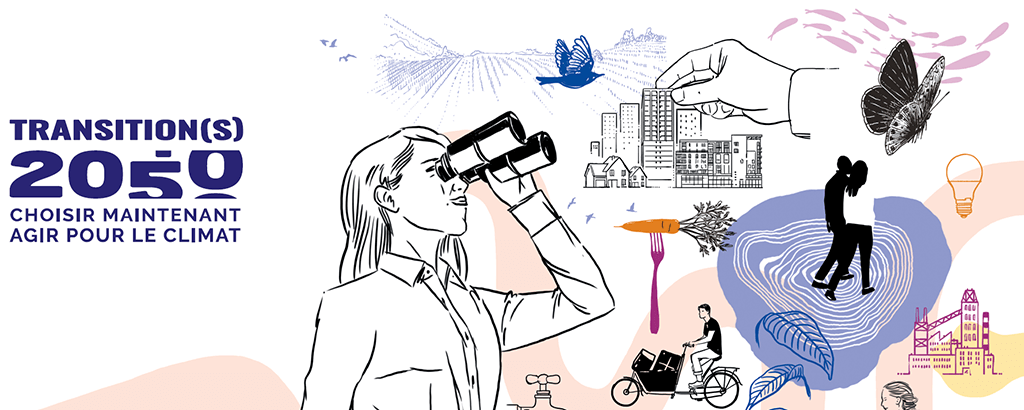Les futurs en transition

©S. Kiehl
La neutralité carbone à l’horizon 2050 appartient désormais au langage commun. Si sa définition est à peu près partagée, le chemin pour l’atteindre reste encore flou, voire totalement inconnu, pour la plupart des décideurs et des citoyens.
Afin de faciliter le passage à l’action, l’ADEME a donc réalisé un exercice de prospective inédit reposant sur quatre ans de travaux d’élaboration. L’objectif de cet exercice de scénarisation est de contribuer à rassembler des éléments de connaissances techniques, économiques et sociales.
Ce travail propose quatre chemins « types », cohérents et contrastés, pour conduire la France vers la neutralité carbone en 2050. Il met en avant des grands enseignements et soulève des problématiques qui pourront nourrir les débats sur les options possibles et souhaitables.
Une 1re édition de cet exercice de prospective a été publiée en novembre 2021. Depuis, une quinzaine de feuilletons est venue enrichir ce travail. Face à l’évolution rapide des conséquences du changement climatique et de la situation énergétique en Europe, l’ADEME a dévoilé en mars 2024 une version actualisée de « Transition(s) 2050 » avec la publication de nouveaux feuilletons thématiques ainsi qu’une mise à jour de la synthèse et du résumé exécutif de ses travaux, qui viennent compléter les conclusions apportées en 2021, incluant notamment une analyse de risque qui précise conditions et impacts de chaque scénario.
Téléchargez les documents présentant l’ensemble de l’exercice (plusieurs formats disponibles)
Les scénarios
Quatre chemins « types » pour conduire la France vers la neutralité carbone
Imaginés pour la France métropolitaine, ces chemins reposent sur les mêmes données macroéconomiques, démographiques et d’évolution climatique (+2,1 °C en 2100). Ils empruntent des voies distinctes et correspondent à des choix de société différents mais conduisent tous à la neutralité carbone.
Les feuilletons
Un éclairage supplémentaire sur les scénarios
En complément des quatre scénarios prospectifs imaginés, une série d’une quinzaine de feuilletons thématiques a été publiée. Ces feuilletons apportent un éclairage supplémentaire sur les impacts induits par chacun des scénarios, sur des thématiques précises : sols, modes de vie, mix électrique, etc.
Les enseignements
Onze grands enseignements communs
L’exploration des quatre scénarios permettant d’atteindre la neutralité carbone de la France en 2050 met en lumière onze grands enseignements transverses.
Les problématiques
Six problématiques pour amener à un débat structurant
Le travail de prospective réalisé n’échappe pas à une prise de recul. Quel que soit le scénario choisi pour atteindre la neutralité carbone, nous avons mis en perspective six problématiques qui devront être mis en débat.



